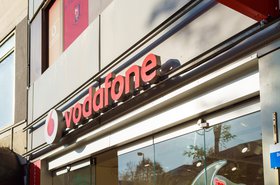Intel has hired Micron’s SVP of technology development, Dr. Naga Chandrasekaran, appointing him as executive vice president and general manager of its Foundry manufacturing and supply chain organization.
Chandrasekaran had worked at Micron for just under 16 years, having held positions on the company’s R&D team throughout his career there. His first day at Intel will be August 12.
In a statement, Intel said Chandrasekaran would be succeeding Keyvan Esfarjani, who announced his retirement from Intel last week after almost 30 years at the company.
Intel said Esfarjani, who wrote on LinkedIn he’d decided to retire and “embark on a new chapter,” would remain with the company until the end of the year to oversee a “seamless” transition.
In his new role, Chandrasekaran will be responsible for Intel Foundry’s worldwide manufacturing operations, including Fab Sort Manufacturing, Assembly Test Manufacturing, strategic planning for Intel Foundry, corporate quality assurance, and supply chain. He will be a member of Intel’s executive leadership team and report to CEO Pat Gelsinger.
“Naga is a highly accomplished executive whose deep semiconductor manufacturing and technology development expertise will be a tremendous addition to our team,” said Gelsinger. “As we continue to build a globally resilient semiconductor supply chain and create the world’s first systems foundry for the AI era, Naga’s leadership will help us to accelerate our progress and capitalize on the significant long-term growth opportunities ahead.”
In February 2024, Intel separated its Product and Foundry lines into two separate businesses, rebranding Intel Foundry Services as Foundry and expanding the business unit to include technology development, supply chains, fabrication, and packaging services.
However, in early April, the company reported that its foundry business had accrued $7 billion in operating losses throughout 2023 before two weeks later reporting further losses of $400 million in the first quarter of 2024.
Speaking at the time, Gelsinger said that the revenue decline for the Foundry unit was not unexpected and the company anticipated 2024 would see it post its biggest operating losses, before eventually breaking even in 2027.
In March, it was announced that Intel would receive $8.5 billion in direct funding, $11bn in low-interest rate loans, and a 25 percent investment tax credit on up to $100 billion of Intel’s capital investments under the Act. It will be used to support the company’s investments in Arizona, New Mexico, Ohio, and Oregon where the company is expanding its chipmaking facilities.







